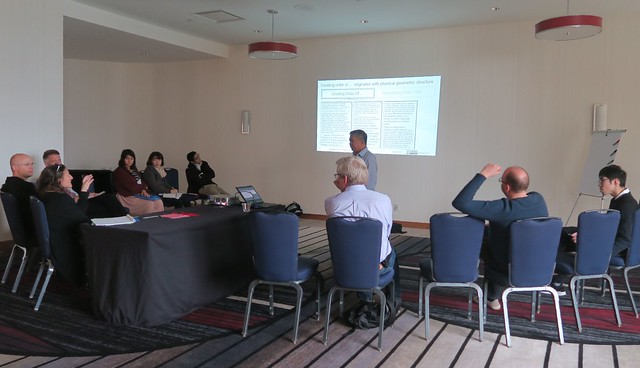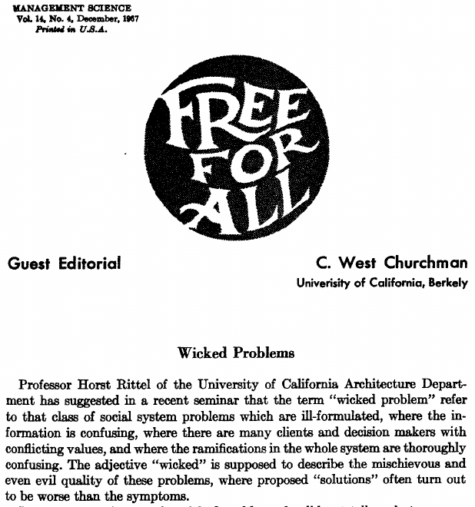Recordings of the book launch proceedings are now available as a web video playlist, and downloadable files.
Open Innovation Learning: Theory building on open sourcing while private sourcing was first released as a perfect bound softcopy and an open access PDF in November 2017. In February 2018, the ePub and Mobi editions were put online.
On February 21, a special session of Systems Thinking Ontario invited friends and colleagues to celebrate the publication that had taken most of the past three years in full-time research and writing. The recordings are available in 4 parts:
- 1. Welcome, by Peter Jones
- 2. Self-introductions by attendees in the audience
- 3. Highlights of the book, presented by David Ing
- 4. Commentary by Stephen Perelgut and Tim Lloyd, followed by questions from the audience
With family, friends and colleagues attending, this was one of the most memorable evenings of my life.
1. Welcome, by Peter Jones
As the official host of Systems Thinking Ontario at OCADU University, Peter Jones served as the master of ceremonies.
The files are also available for download onto a mobile device.
| Digital video (5m48s) |
H.264 MP4 | WebM |
| [20180221_1840_ST-ON OILTB_Jones HD_504kbps.m4v] (HD 504Kbps 28MB)[20180221_1840_ST-ON OILTB_Jones nHD_49kpbs.m4v] (nHD 49Kkps 8MB) |
[20180221_1840_ST-ON OILTB_Jones HD_826kbps.webm] (HD 826Kbps 45MB)[20180221_1840_ST-ON OILTB_Jones nHD_120kbps.webm] (nHD 120Kbps 13MB) |
|
| Digital audio (5m48s) |
[20180221_1840_ST-ON_OILTB_Launch_Welcome_PeterJones.mp3] (5MB) |
|
Peter explained the Nordic tradition of presenting dissertation research in a venue open to the public.… Read more (in a new tab)
Recordings of the book launch proceedings are now available as a web video playlist, and downloadable files.
Open Innovation Learning: Theory building on open sourcing while private sourcing was first released as a perfect bound softcopy and an open access PDF in November 2017. In February 2018, the ePub and Mobi editions were put online.
On February 21, a special session of Systems Thinking Ontario invited friends and colleagues to celebrate the publication that had taken most of the past three years in full-time research and writing. The recordings are available in 4 parts:
- 1. Welcome, by Peter Jones
- 2. Self-introductions by attendees in the audience
- 3. Highlights of the book, presented by David Ing
- 4. Commentary by Stephen Perelgut and Tim Lloyd, followed by questions from the audience
With family, friends and colleagues attending, this was one of the most memorable evenings of my life.
1. Welcome, by Peter Jones
As the official host of Systems Thinking Ontario at OCADU University, Peter Jones served as the master of ceremonies.
The files are also available for download onto a mobile device.
| Digital video (5m48s) |
H.264 MP4 | WebM |
| [20180221_1840_ST-ON OILTB_Jones HD_504kbps.m4v] (HD 504Kbps 28MB)[20180221_1840_ST-ON OILTB_Jones nHD_49kpbs.m4v] (nHD 49Kkps 8MB) |
[20180221_1840_ST-ON OILTB_Jones HD_826kbps.webm] (HD 826Kbps 45MB)[20180221_1840_ST-ON OILTB_Jones nHD_120kbps.webm] (nHD 120Kbps 13MB) |
|
| Digital audio (5m48s) |
[20180221_1840_ST-ON_OILTB_Launch_Welcome_PeterJones.mp3] (5MB) |
|
Peter explained the Nordic tradition of presenting dissertation research in a venue open to the public.… Read more (in a new tab)




